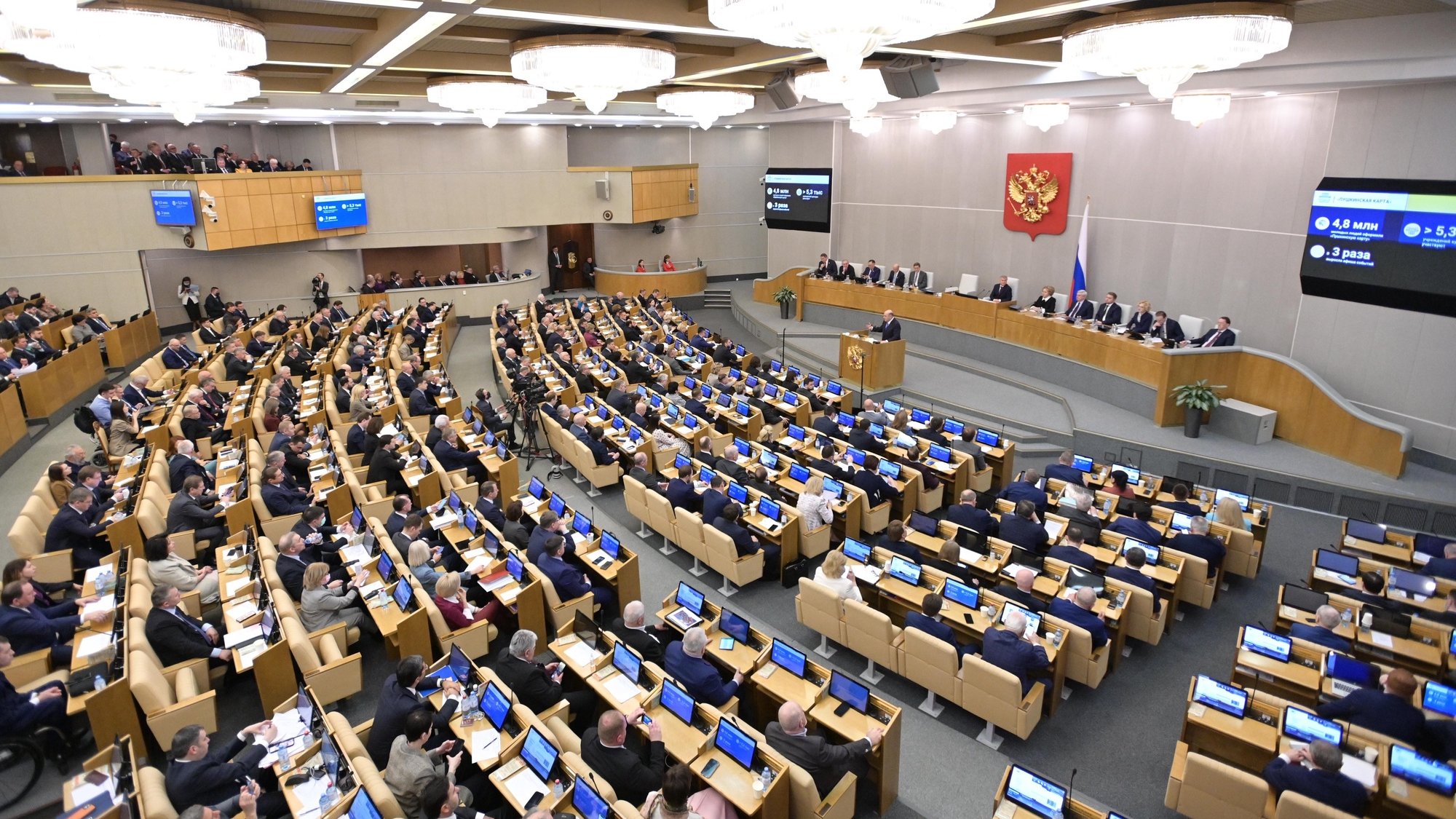Russian deputies approved a bill on Tuesday that would allow the closure of foreign media in Russia, by decision of the Public Ministry, if they were accused of misinforming about the war in Ukraine.
The lower house of the Russian Parliament, the Duma, has indicated that this type of media could be banned. “in case of disclosure of information aimed at discrediting the Russian Armed Forces or linked to the introduction of sanctions” against Russia
Under the bill, approved on first reading, the attorney general or his deputies may have the right to withdraw a broadcasting license from a media outlet. if you post information considered “illegal” or “dangerous”.
The accreditation of journalists working in foreign media could also be canceled, according to the text that will be approved after three readings in the Duma and a final reading in the upper house.
In a statement, the Duma added that the law also allows “to close or limit the activities of a media outlet in Russiaif the authorities of the media’s home country commit hostile acts against Russian media abroad.”
In early March, Russian authorities passed two laws punishing “discrediting” the Russian Armed Forces and spreading “false information” about them, both with severe prison sentences.
Russia will ban by law news considered false about the actions of the army abroad
Since the Kremlin crackdown, Russian state media RT and Sputnik have been banned from broadcasting in Canada, the UK and the European Union, raising the risk of retaliation against newsrooms from these countries working in Russia.
The EU decided to ban Russian channels, but RT continues to be broadcast in Portugal. And the programming is described as “comprehensive and educational.”
On May 18, Russia shut down the Moscow newsroom of Canadian broadcaster CBC, in response to RT’s ban in Canada.
Last week, the Committee to Protect Journalists, a US-based non-governmental organization, called for the proposed new Russian law to be dropped, saying it would “facilitate the arbitrary banning of the media and lead to an increase in the number of journalists persecuted for sharing information”.
Russia launched a military offensive in Ukraine on February 24 that has killed more than 3,000 civilians, according to the UN, which warns the true toll is likely to be much higher.
The Russian invasion was condemned by the international community at large, which responded by sending weapons to Ukraine and tightening economic and political sanctions on Moscow.
Source: Observadora
